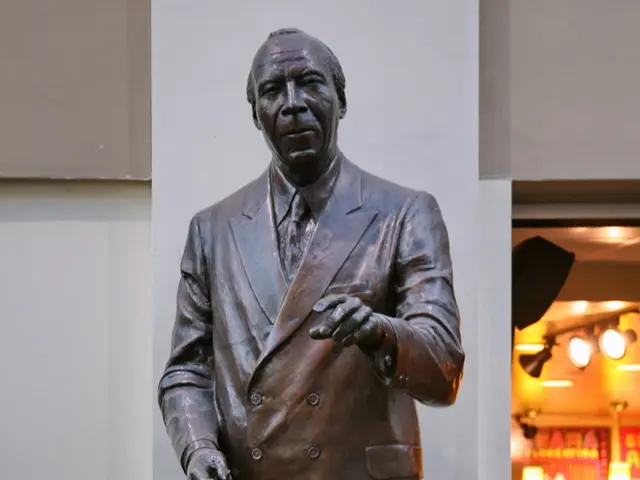Collaboration of GLPI with NAAiG for Safeguarding Land-Based Casino Territories
The Evolution of Land-Based Casinos in the Era of Online Gambling
The gaming landscape is undergoing a significant transformation as the growth of online gambling (iGaming) gains momentum. This shift presents both challenges and opportunities for traditional, physical casinos.
The Impact on Physical Casinos
- Competing for Revenue and Market Share: The rapid expansion of iGaming, with an 8.40% compound annual growth rate (CAGR), outpaces that of physical casinos, which have a 6.68% CAGR in North America [1]. This trend could potentially erode some market share from land-based venues, as online platforms offer convenience, 24/7 accessibility, and lucrative bonuses that attract many players [3].
- Changing Player Preferences: Urban professionals and casual players increasingly prefer online platforms for their time efficiency and easy access via mobile devices [1][3]. Online social casino formats and live dealer streaming replicate aspects of the physical experience, reducing the necessity to travel to casinos [1][4].
- Preserving the Unique Offerings of Physical Casinos: Physical casinos hold unique advantages, such as large integrated-resort ecosystems—combining luxury lodging, entertainment, dining, and gaming—that digital platforms cannot fully replicate [1]. Additionally, tribal and regional casinos serve cultural and economic roles in rural areas that online gambling does not replace [1].
Adapting for Mutual Growth
- Embracing Technology to Enhance Experiences: By adopting Virtual Reality (VR) technology, casinos can create immersive environments that combine the convenience of online gambling with the physical casino atmosphere, potentially attracting new demographics [2]. Live dealer games, with high-quality streaming and interactive dealers, replicate on-floor experiences, making online play more engaging and encouraging players to visit physical casinos for enhanced experiences [4].
- Cross-Platform Loyalty and Branding: Integrated loyalty programs that reward players across physical resorts and online platforms encourage cross-patronage and maximize customer lifetime value [1]. Brand extensions through exclusive online titles and cross-vertical promotions enhance player engagement on both platforms and strengthen brand loyalty [1].
- Complementary Market Positioning: Physical casinos can focus on offering large-scale, in-person experiences that online gambling cannot replicate, positioning themselves as destinations beyond just gambling [1]. Online platforms can serve as feeder channels, habituating casual gamers and urban professionals who might eventually transition to visiting physical properties [1].
- Hybrid Offerings and Innovation: Casinos might offer hybrid experiences where online players earn perks, comps, or invitations to physical events, creating a seamless bridge from digital to physical engagement [1]. Investment in mobile optimization, geolocation, and payment solutions reduces friction, ensuring that players can easily switch between platforms or combine them in their gambling habits [1].
In conclusion, while iGaming growth challenges physical casinos by diverting some players toward convenience and bonuses, land-based casinos maintain competitive advantages in immersive, large-scale experiences and integrated resorts. The industry's best path forward involves embracing digital innovation, developing strong cross-platform loyalty programs, and positioning digital and physical offerings as complementary rather than purely competitive. This symbiosis can help ensure mutual growth and market expansion rather than zero-sum competition.
However, it is essential to consider whether the industry is resisting change or avoiding responsibility for how to adapt to the growth of online gaming. iGaming undermines jobs in the in-person entertainment sector, and groups like NAAiG focus on defending local economies tied to traditional gaming operations. It is crucial for all stakeholders to work together to build a model where physical and digital platforms can support each other, rather than one needing to block the other.
- The increasing popularity of online casino games and gambling trends has led some to question the future of traditional casino-culture, as urban professionals and casual players prefer the convenience and accessibility of online platforms over land-based venues.
- In response to these shifts, casino personalities are embracing responsible gambling initiatives and the use of technology to enhance experiences, such as Virtual Reality (VR) and live dealer streaming, to replicate aspects of the physical casino experience and attract new demographics.
- As online gambling continues to evolve, it is crucial for physical casinos and the casino industry as a whole to adopt responsible gambling practices, limit potential harm to individuals, and work collaboratively to ensure the growth and prosperity of both physical and digital platforms within the gaming landscape.








